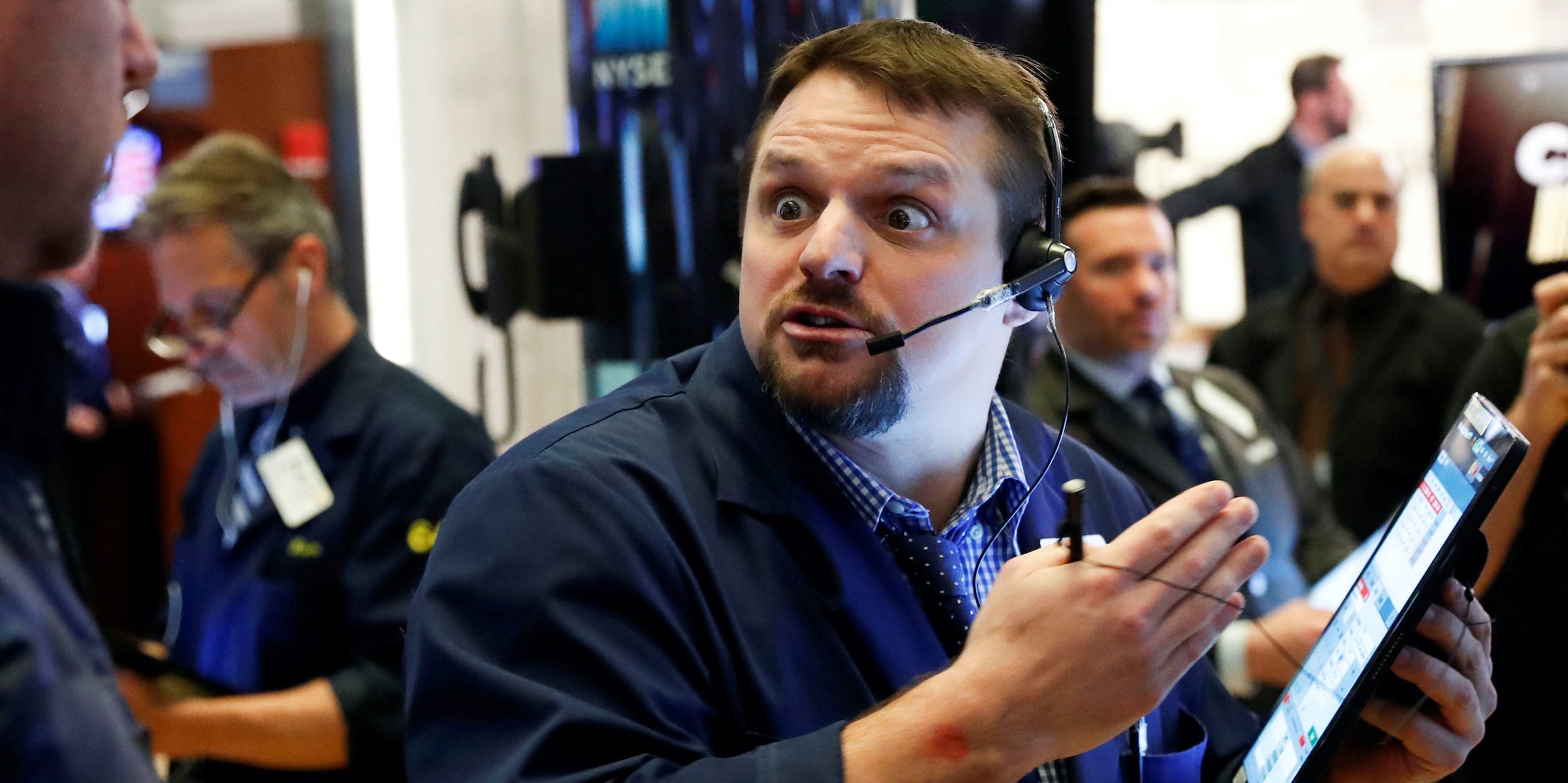
- The stock market fear gauge did the exact opposite of what most investors expected it to do on Wednesday: it moved lower despite uncertain results of the presidential election.
- Cboe’s volatility index, or VIX, fell by as much as 15% on Wednesday, according to data from Bloomberg.
- The move lower in the volatility index coincided with a surge in the stock market, with the tech-heavy Nasdaq 100 Index surging as much as 4% in Wednesday trades.
- Visit Business Insider’s homepage for more stories.
An uncertain outcome of the presidential election and a potential divided Congress result led the stock market to do the near opposite of what some Wall Street experts expected it to do: trade higher.
That surge in stocks has coincided with the stock market’s so-called fear gauge, the Cboe Volatility Index (VIX), plunging as much as 15% on Wednesday, according to data from Bloomberg.
The VIX’s movement was sporadic in overnight futures, with an initially spike on the prospects of a Trump win, before an ultimate deflation as a path to victory for Joe Biden became more possible as votes continued to be counted.
Some Wall Street strategists expected a gridlocked government to be a less favorable scenario for stocks than a “blue wave,” as it would dim hopes of a sizable fiscal stimulus deal being quickly passed early next year.
Other strategists, like Fundstrat's Tom Lee, expected a stock rally regardless of the outcome, even if the election results end up being contested.
BlackRock's view that a divided government would be positive for technology stocks is playing out so far, with the technology heavy Nasdaq 100 Index leading the market higher as of Wednesday morning.
Technology stocks are moving higher in trading Wednesday as antitrust risk is viewed as less likely under a mixed government than a democratic sweep of Congress and the White House.
Still, with election results uncertain for both control of the Senate and White House, it's too early too call which Wall Street strategists nailed their pre-election predictions.
Meanwhile, some traders have profited handsomely from Wednesday's precipitous decline in the VIX Index, as a spike in the VIX put/call ratio in October signaled that some traders were placing bets on a fall in the fear gauge index, according to Bloomberg.
